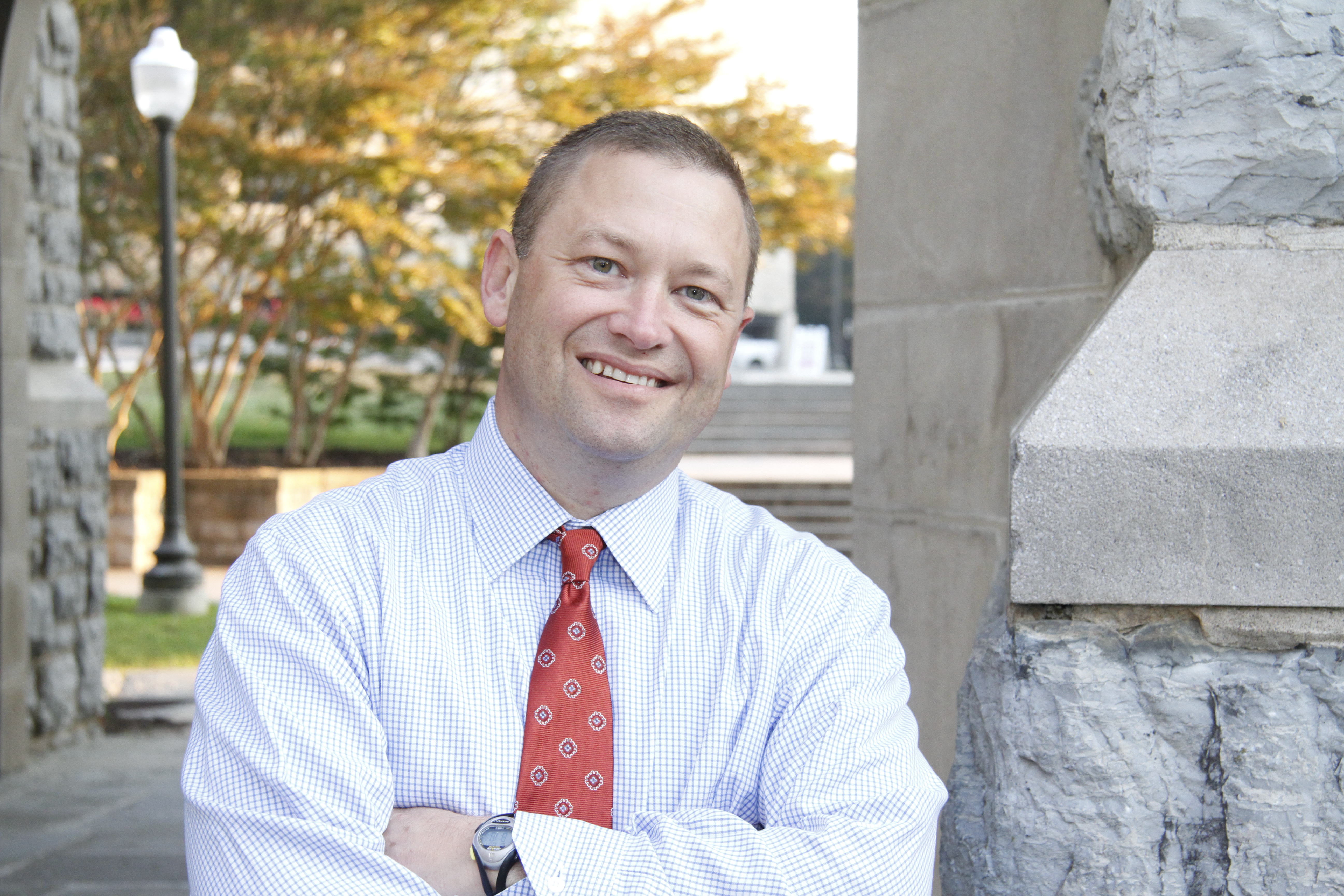Frank Shushok receives Anderson Inspiration Award for work in strengths approach to education

Frank Shushok Jr., senior associate vice president for student affairs at Virginia Tech, has been recognized with the Anderson Inspiration Award for his work as an advocate of the strengths-based approach to education.
The Anderson Inspiration Award originates at Azusa Pacific University and is given by the Noel Academy of Strengths-Based Leadership and Education to an individual who has made significant contributions in advancing the strengths movement in higher education. It is named in memory of Edward “Chip” Anderson who was known as the father of the strengths movement.
The strengths approach looks at potential and helps people be their best selves – engaged, productive, and thoughtful. The focus is less on fixing weaknesses and more on building those characteristics that promotes success.
Shushok’s 2006 article, "What’s Right with You: Helping Students Find and Use Their Personal Strengths" advocated that institutions of higher education move away from a disposition toward studying the least successful to a focus on understanding students who are fulfilled, accomplished, and, most important, learning.
The concept is quickly becoming a part of the Virginia Tech culture. During this summer’s orientation, incoming students were introduced to the Clifton StrengthsFinder assessment tool.
Members of the Virginia Tech community can take the assessment and develop goals and action plans based on the results. Virginia Tech is the first university to partner with Gallup Inc. to make the assessment tool available to all students, faculty, and staff.
A member of the Virginia Tech community since 2009, Shushok received his Ph.D. from the University of Maryland, a master's degree from Ohio State University, and a bachelor's degree from Baylor University.
Dedicated to its motto, Ut Prosim (That I May Serve), Virginia Tech takes a hands-on, engaging approach to education, preparing scholars to be leaders in their fields and communities. As the commonwealth’s most comprehensive university and its leading research institution, Virginia Tech offers 240 undergraduate and graduate degree programs to more than 31,000 students and manages a research portfolio of $513 million. The university fulfills its land-grant mission of transforming knowledge to practice through technological leadership and by fueling economic growth and job creation locally, regionally, and across Virginia.







